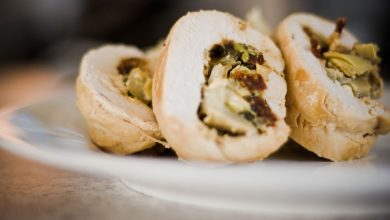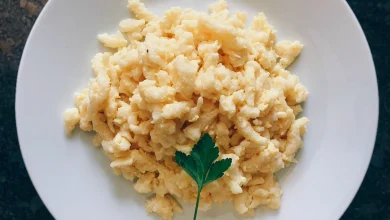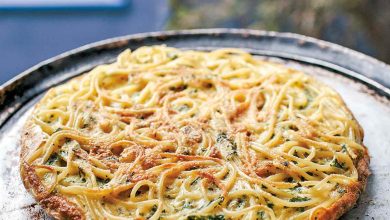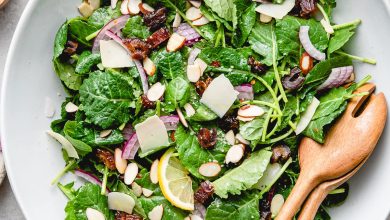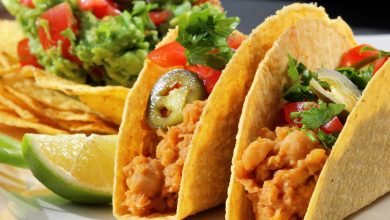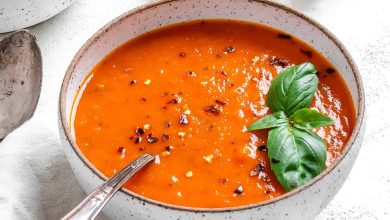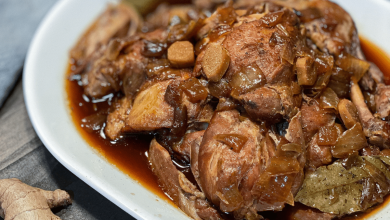Non-Dairy Gorgonzola
Non-Dairy Gorgonzola, also known as vegan Gorgonzola, is a dairy-free alternative to the traditional Gorgonzola cheese, which is known for its strong and tangy flavor. As a recipes collector who appreciates food and beverages, you might be interested in this vegan twist on a classic cheese. Let’s delve into what it is, its history, components, preparation steps, and the time required to make it.
What is Non-Dairy Gorgonzola?
Non-Dairy Gorgonzola is a plant-based cheese substitute designed to mimic the texture and taste of traditional Gorgonzola cheese without using any dairy ingredients. It is suitable for vegans, lactose-intolerant individuals, or those looking to reduce their dairy consumption while still enjoying the flavors reminiscent of Gorgonzola.
History of Non-Dairy Gorgonzola:
The history of vegan cheese is relatively recent compared to traditional dairy cheeses. As more people embrace plant-based diets and dietary restrictions, the demand for dairy-free alternatives has grown. The development of vegan Gorgonzola is part of this trend, and it has evolved over the past few decades to offer a variety of flavors and textures similar to their dairy counterparts.
Components of Non-Dairy Gorgonzola:
Non-Dairy Gorgonzola typically includes the following components:
- Cashews or Almonds: These are often used as the base for the creamy texture of the cheese.
- Probiotics: To achieve the characteristic tangy flavor and aid in the fermentation process.
- Nutritional Yeast: For a cheesy, umami flavor.
- Salt: To enhance the taste.
- Tapioca Starch or Agar-Agar: These ingredients help to create the desired texture.
- Spices and Flavorings: Such as garlic, onion powder, and herbs, to add depth of flavor.
Steps to Prepare Non-Dairy Gorgonzola:
Here’s a simplified recipe for making Non-Dairy Gorgonzola:
Ingredients:
- 1 cup soaked cashews or almonds
- 2 probiotic capsules (empty the powder)
- 2 tbsp nutritional yeast
- 1 tsp salt
- 2 tbsp tapioca starch or 1 tsp agar-agar
- 1/2 tsp garlic powder
- 1/2 tsp onion powder
- 1/2 tsp dried basil (optional)
- Water (as needed for consistency)
Instructions:
- Soak the cashews or almonds in water for at least 4 hours or overnight. Drain them before use.
- In a blender, combine the soaked nuts, probiotic powder, nutritional yeast, salt, tapioca starch (or agar-agar), garlic powder, onion powder, and dried basil.
- Blend until smooth, adding water as needed to achieve a creamy consistency.
- Transfer the mixture to a glass container and cover it loosely with a cloth.
- Allow it to ferment at room temperature for 24-48 hours, depending on the desired level of tanginess. Taste it periodically to check the flavor.
- Once fermented, refrigerate the Non-Dairy Gorgonzola for a few hours to firm it up.
Time Needed:
- Preparation: About 15 minutes
- Fermentation: 24-48 hours
- Refrigeration: A few hours
The total time required to prepare Non-Dairy Gorgonzola can vary, mainly due to the fermentation period. It’s a labor of love for cheese enthusiasts who appreciate the rich and tangy flavors of Gorgonzola but prefer a dairy-free option.
I hope this detailed information helps you in your quest for non-dairy culinary delights. If you have any more questions or need further assistance, please feel free to ask.
Certainly, let’s explore the nutrition facts and health information for Non-Dairy Gorgonzola, focusing on the key components used in the recipe.
Nutrition Facts for Non-Dairy Gorgonzola (Per Serving):
Please note that these values can vary based on specific ingredient brands and quantities used in the recipe. The values provided are approximate.
-
Calories: Approximately 100-120 calories per 1-ounce serving.
-
Fat: Around 7-9 grams of fat per serving, primarily from cashews or almonds. These fats are mostly unsaturated, which can be heart-healthy.
-
Protein: About 3-4 grams of protein per serving, mainly from nuts. This provides a source of plant-based protein.
-
Carbohydrates: Roughly 7-9 grams of carbohydrates per serving. The primary source is from the starchy component (tapioca starch or agar-agar) and some from nuts.
-
Dietary Fiber: 1-2 grams of dietary fiber per serving, mainly from the nuts and starch used.
-
Sodium: Approximately 250-300 milligrams of sodium per serving. The salt content can vary based on personal preference.
-
Vitamins and Minerals: Non-Dairy Gorgonzola can provide various vitamins and minerals, including B vitamins (from nutritional yeast), calcium (from fortified nutritional yeast or plant milk used), and magnesium (from nuts). The exact content depends on specific ingredients and brands.
Health Information:
-
Dairy-Free: Non-Dairy Gorgonzola is a suitable option for individuals who are lactose intolerant or following a dairy-free or vegan diet.
-
Heart-Healthy Fats: The fats in cashews or almonds are primarily unsaturated fats, which can contribute to heart health when consumed in moderation.
-
Protein Source: This plant-based cheese offers a source of protein from nuts, making it a suitable choice for vegans and vegetarians.
-
Low in Saturated Fat: Since it’s dairy-free, Non-Dairy Gorgonzola typically contains minimal saturated fat, which is beneficial for heart health.
-
Low Cholesterol: Plant-based cheeses like this one are naturally cholesterol-free, promoting better cardiovascular health.
-
Vitamins and Minerals: Depending on the nutritional yeast and plant milk used, it can provide essential nutrients like B vitamins (B12, riboflavin), calcium, and magnesium.
It’s worth noting that while Non-Dairy Gorgonzola can be a healthier alternative to traditional cheese for those with dietary restrictions, it’s essential to consider portion sizes and overall diet quality as part of a balanced, nutrient-rich eating plan.
As always, individual nutritional needs and preferences may vary, so it’s a good idea to consult with a registered dietitian or healthcare professional for personalized dietary advice.

